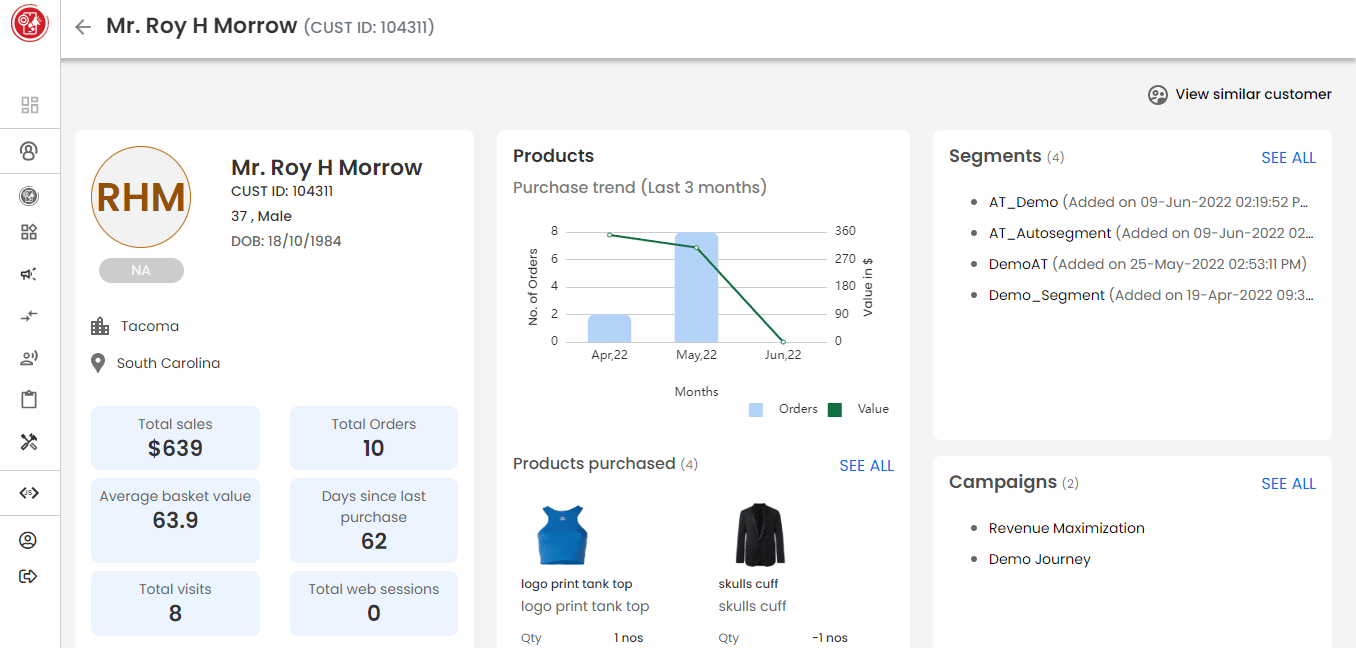Alternatives to Gempages
1. Adobe Sensei
+Pros
- Comprehensive Creative Cloud integration enabling seamless workflow automation.
- Strong technical performance with 4.65/5 accuracy scores in object addition tasks.
- Enterprise-grade security through SOC 2 compliance and established market position.
-Cons
- Accuracy limitations in background removal compared to specialized alternatives.
- Internet dependency creates significant constraints for offline work environments.
- Implementation complexity requires 6-8 weeks for enterprise deployment.
One highlighted feature and why it's amazing
Reduces complex editing tasks from hours to minutes, validated by 5-star user ratings for precision.

Another highlighted feature of why it’s amazing
Part of the platform's content-aware automation capabilities, optimized for creative workflows.
2. Algonomy Ensemble AI
+Pros
- Advanced Styling Automation with real-time outfit rendering.
- Enterprise-Scale Capability with proven ability to handle large-scale implementations.
- Contextual Intelligence for ensemble creation beyond simple product recommendations.
- Measurable Performance Claims with vendor-reported conversion rate lifts and revenue-per-visit increases.
-Cons
- Pricing Transparency Deficit requiring direct vendor consultation for cost assessment.
- Implementation Complexity requiring comprehensive data infrastructure preparation.
- Limited Independent Validation affecting confidence in performance claims.
- Support Structure Uncertainty compared to competitors providing dedicated AI specialist access.
- Technical Stability Concerns in complex deployments.
One highlighted feature and why it's amazing
Dynamically assembles complete looks using complementary color detection, natural language processing, and crowd-sourced co-occurrence data.

Another highlighted feature of why it’s amazing
Analyzes material compatibility, seasonal appropriateness, and style coherence to suggest complementary items.
3. Out of the Sandbox
+Pros
- Specialized expertise in Shopify theme management
- Proven update automation capabilities
- Deep platform integration
- Responsive customer support
-Cons
- Narrow AI sophistication compared to comprehensive platforms
- Limited AI-generated content capabilities
- Enterprise scalability constraints
One highlighted feature and why it's amazing
The Theme Updater app uses AI to perform diff-checking and conflict resolution during theme updates, automatically preserving code edits, color schemes, and section configurations when migrating to newer versions, reducing manual rework and developer dependency.

Another highlighted feature of why it’s amazing
AI and automation capabilities include smart image focal points and predictive search features embedded directly in themes like Turbo and Flex.
Other Alternatives
PageFly Advanced
Pixel Union
Shogun Page Builder
How We Researched This Guide
About This Guide: This comprehensive analysis is based on extensive competitive intelligence and real-world implementation data from leading AI vendors. StayModern updates this guide quarterly to reflect market developments and vendor performance changes.
271+ verified sources per analysis including official documentation, customer reviews, analyst reports, and industry publications.
- • Vendor documentation & whitepapers
- • Customer testimonials & case studies
- • Third-party analyst assessments
- • Industry benchmarking reports
Standardized assessment framework across 8 key dimensions for objective comparison.
- • Technology capabilities & architecture
- • Market position & customer evidence
- • Implementation experience & support
- • Pricing value & competitive position
Research is refreshed every 90 days to capture market changes and new vendor capabilities.
- • New product releases & features
- • Market positioning changes
- • Customer feedback integration
- • Competitive landscape shifts
Every claim is source-linked with direct citations to original materials for verification.
- • Clickable citation links
- • Original source attribution
- • Date stamps for currency
- • Quality score validation
Analysis follows systematic research protocols with consistent evaluation frameworks.
- • Standardized assessment criteria
- • Multi-source verification process
- • Consistent evaluation methodology
- • Quality assurance protocols
Buyer-focused analysis with transparent methodology and factual accuracy commitment.
- • Objective comparative analysis
- • Transparent research methodology
- • Factual accuracy commitment
- • Continuous quality improvement
Quality Commitment: If you find any inaccuracies in our analysis on this page, please contact us at research@staymodern.ai. We're committed to maintaining the highest standards of research integrity and will investigate and correct any issues promptly.